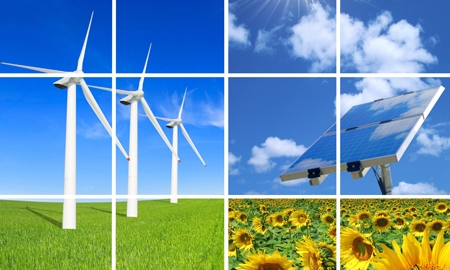With a vision toward the future of Ghana’s energy sector,
Ghana Grid Company (GRIDCo) is especially focused on alternative energy sources as an integral part of its future development.
“We are taking renewable energy very seriously,” explains the CEO of GRIDCo, Charles Darku, citing solar energy as having high potential but not discarding wind as a viable alternative. “We think that renewables offer us an opportunity to get power into the hands of ordinary people in a whole new way, and make power more readily available.”
The company’s vision parallels the Ghanaian government’s recent legislation called the Renewable Energies Act, which aims to have 10% of energy consumption provided by alternative energy sources by 2020.
Ghana’s Minister for Environment, Science and Technology, Sherry Ayittey, notes that the bill guarantees private investment and opens up opportunities for public-private partnerships. She highlights that this will guarantee various opportunities for harnessing possibilities in the country.
“We know that we can get a lot of wind energy, converting waste into energy and also solar energy. Investment in solar energy, compared to investment in fossil fuels and hydro, is more environmentally friendly,” Ms. Ayittey says.
Apart from government legislation GRIDCo, a public sector company, is taking the initiative to explore renewable energies and see how to integrate them into the national grids through organizing a workshop.
“The discussion was led by a world renowned expert from General Electric,” explains Mr. Darku. “Integrating renewables into power grids has its own challenges, and that is what we are sensitizing to through this two-day workshop.”
$103 million European deal
A recent loan agreement between the African energy company
Ghana Grid Company (GRIDCo) and the large European bank Societe Generale, based in Paris, France, for €82.2 million ($103 million) will significantly help finance the development of the energy sector in Ghana.
While about €40 million will be used to modernize the old substations built in the 1960’s that are currently showing signs of deterioration, the other half of the financing will go toward completing a line in northern Ghana.
“The northern lines were first built to serve the needs we had 20 years ago, but there has been so much growth that this is no longer feasible,” explains GRIDCO’s CEO Charles Darku, referring to the Tumu-Han-Wa transmission project. “This new line will ensure that the quality of supply in the north is just as good as in the south.”
Societe Generale indicated the bank’s enthusiasm for helping the Ghanaian government achieve their goal of reaching 5,000 megawatts.
Allies in the energy sector
Ghana and the United States have always had an exceptionally strong relationship especially within the energy sector. American investments now surpass the Chinese with $407.2 million in the first quarter of 2012 and an expected $1.2 billion to be invested directly into energy development.
“I think the relationship is mutually beneficial, which has grown by mutual interests, and I think it will develop further in that direction,” says Ghana Grid Corporation’s
(GRIDCo) CEO Charles Darku, who explains that it is not only the investments but also the cultural ties that facilitate the two countries working together. “Many Ghanaians have family in America and have been educated or trained there. We have returned and brought American approaches and work ethic to our businesses.”
Mr. Darku, who studied public administration at Harvard University, explains that with a small time difference, common approach to trade, and many similarities with the technologies and infrastructure used, Americans and Ghanaians can work easily together within their respective energy sectors.

0 COMMENTS